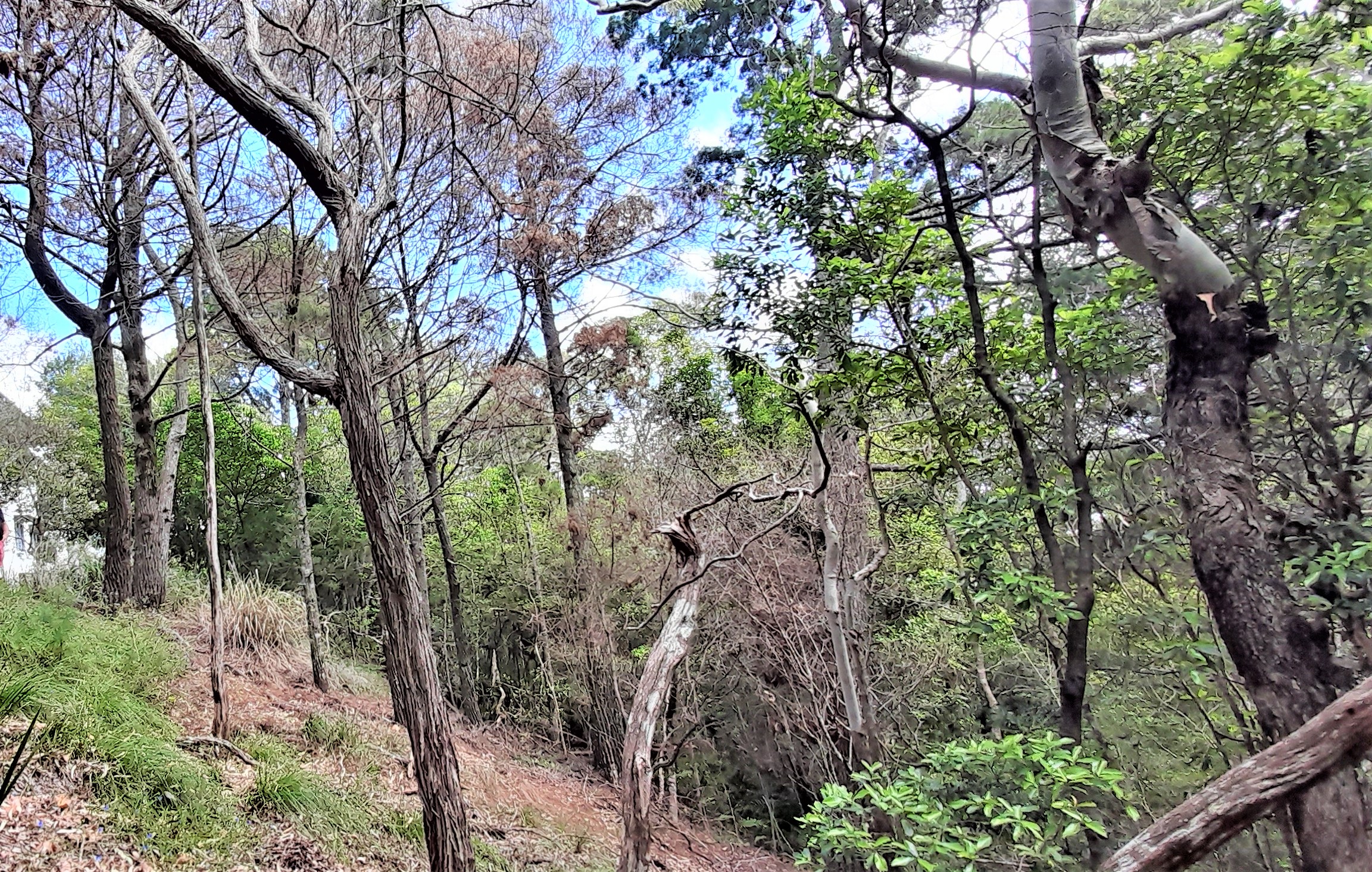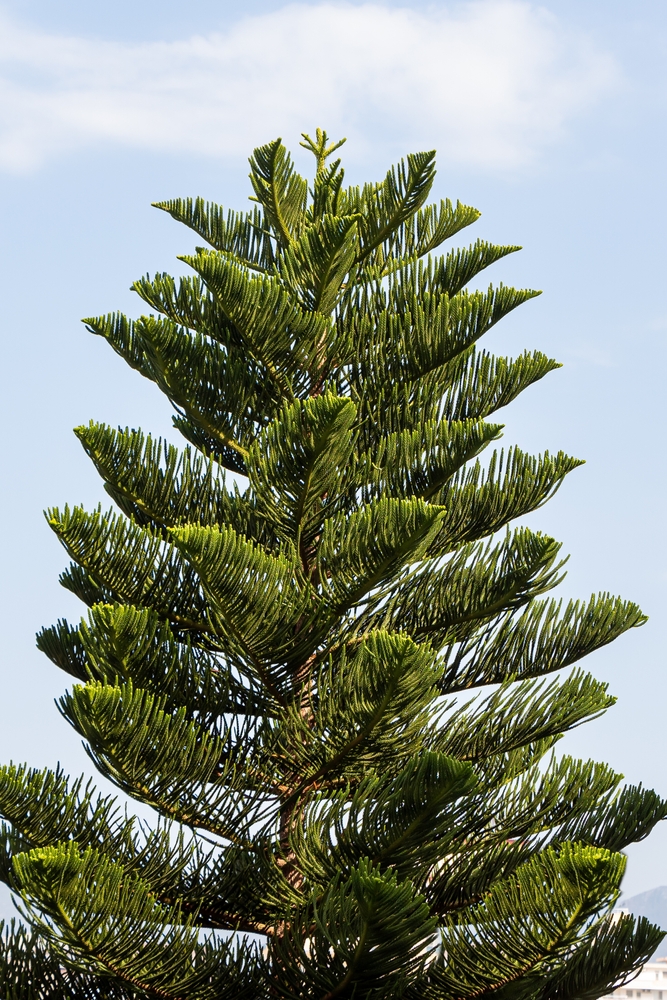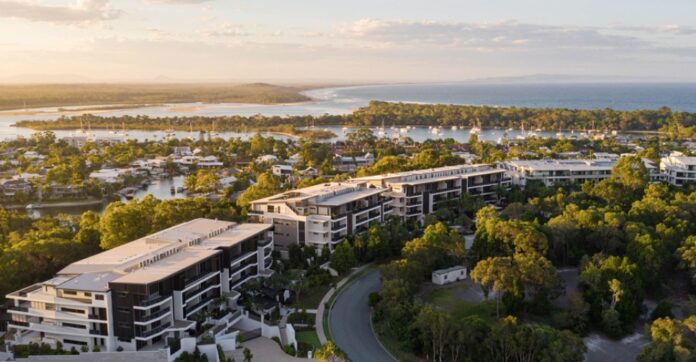Noosa may be a UNESCO Biosphere Reserve and passionate about the environment, but that hasn’t stopped some people killing off trees to get a better view.
In recent years, there have been various cases of prized trees in public parks, roadsides and bushland being poisoned, the most recently in Noosa Heads involving 60-year-old trees.
But in an effort not to “reward” the wrongdoers for their selfishness, the council says it is deliberately leaving the dead or visibly sick trees in place as a daily reminder.
In the most recent case at Noosa Heads, which impacted Bribie Island Pines and Hard Quandongs, the 12 dead trees will stay and native climbers will be planted to cover them.
The trees are located within a protected vegetation covenant and important koala corridor on privately owned land at Settler’s Cove, bordering Noosa inlet.
Wildlife boxes will also be installed to create shelter for native animals.

Parks and Gardens Coordinator Matt Hansen said without witnesses or CCTV footage it was often difficult to prove who was responsible for poisoning trees on public land, even if it was strongly suspect the trees were poisoned to improve a view.
“If the trees are structurally sound, and may still provide habitat for wildlife, we will often leave them in place rather than remove them, so as not to reward those responsible for killing the trees,” said Mr Hansen.
“Where possible, we will replace any poisoned trees that we have to remove, with a similar species of tree, either in the same location or in a suitable location nearby.”
Over the past five years, he said poisoning incidents in Noosa parks and roadsides included:
- a large eucalypt on Gympie Street at Tewantin
- a large fig tree in a park at Kin Kin
- two Norfolk pine trees in Arakoon Crescent at Sunshine Beach
“The Tewantin eucalypt declined quickly and on investigation Council staff found drill holes in the base which confirmed it had been poisoned,” said Parks and Gardens Coordinator, Matt Hansen.
“Not completely dead, that tree was left in place and is monitored regularly.
“It is a species and size that provides valuable habitat for native wildlife and has active hollows at present, so if it does decline further, we would look to manage it as a habitat tree.
“The tree in Kin Kin was one of two poisoned in the same park. Lab tests of tissue samples confirmed the use of herbicide on the trees. The second tree survived and was left in place.
“The Kin Kin trees had been subject to a complaint about invasive roots, and Council had agreed to install root barriers to address the issues, before they were poisoned,” Mr Hansen said.

“The two poisoned Norfolk pines at Sunshine Beach were removed due to safety concerns with their size and the location.”
In recent years, Council’s Natural Areas team has also investigated three cases where trees in bushland have been poisoned.
“Each incident involved a multitude of trees and understorey vegetation,” Acting Environmental Services Manager, Rebecca Britton, said.
“Two cases involved trees within same reserve – Doonella Wetlands Nature Refuge along Shields Street, Tewantin,” she said.
“The other incident was along Lake Weyba Drive, Noosaville. In that instance Council’s Natural Areas team installed temporary signage to let residents know the matter was being investigated.
“We carried out soil testing to confirm the use of herbicide in each case.”
Settler’s Cove poisoning
Council’s development assessment manager Kerri Coyle said initial investigations have revealed poisonous herbicides in the soil at the Noosa Heads kill.
“Soil testing near the dead trees has shown a presence of herbicides that are used to kill woody vegetation on grazing lands,” she said.
The council believed the trees were poisoned to improve the view from a nearby apartment complex.
Ms Coyle said Council staff were working with the Settler’s Cove body corporate to restore the area and in addition to the native vines and nesting boxes, the site would be replanted with replacement trees.
“We are also seeking the body corporate to remediate the soil to remove the herbicide,” she said.
Ms Coyle said a concerned resident alerted the council to the suspected tree kill and that the Council was able to issue hefty infringements up to $10,000 towards anyone responsible.
“Any suspected interference with protected vegetation – be it for views, sunlight, to reduce leaf litter or any other reason – is taken very seriously by Council.
“Anyone found to poison, damage or clear native vegetation in breach of the planning scheme will face infringements and/or prosecution by Council.”





